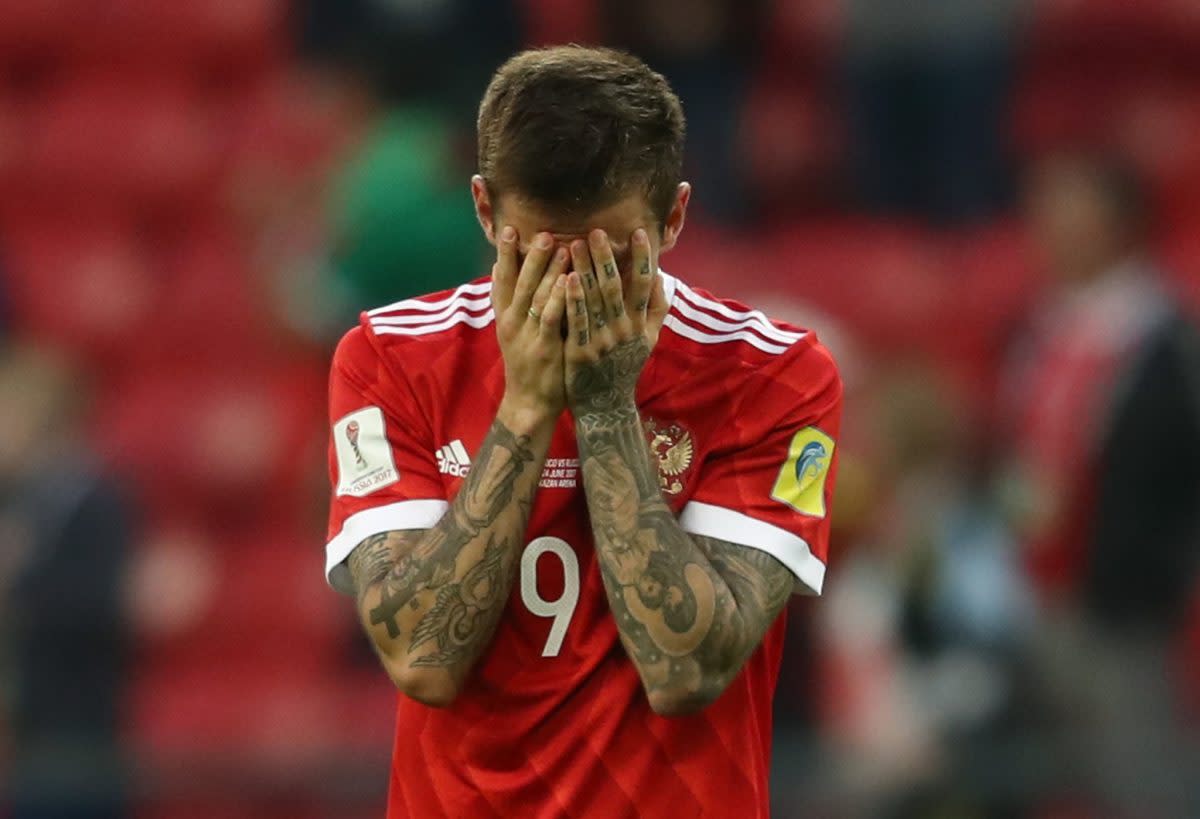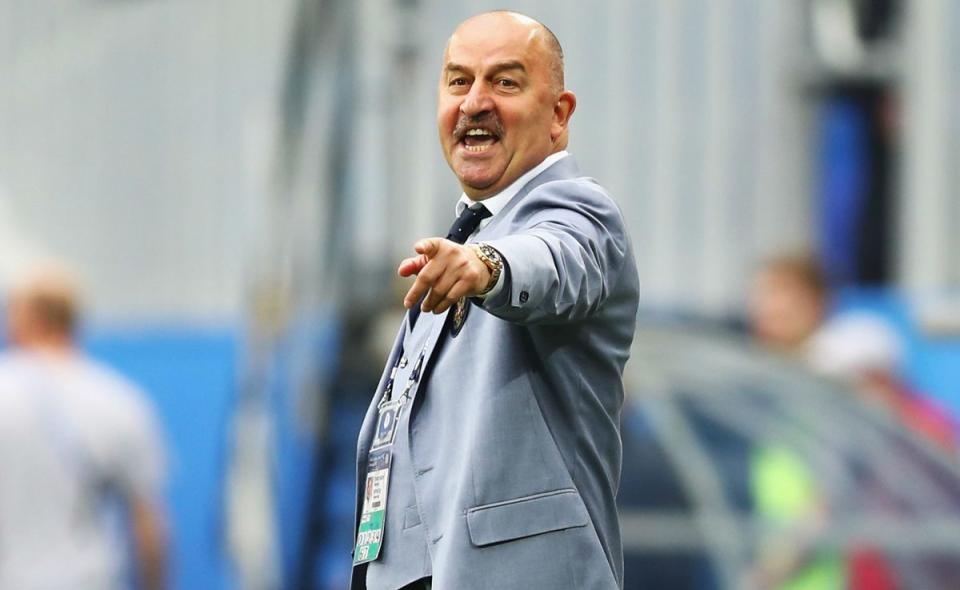A year before hosting the World Cup, Russia's national team has a lot of work to do

The World Cup is a less than a year away. A formidable Russian national team feels a lot further than that.
When you’re one of the biggest, richest and most influential nations in the world – for better or worse – that’s a problem. When you’re hosting the showpiece sporting event on the planet in summer 2018, that’s a problem. And it’s a problem that was on full display at the Confederations Cup, with a glaring emphasis on “was.”
The Russians opened the tournament with a relative whimper, a 2-0 win over New Zealand, which finished three group stage matches with zero points, one goal scored and eight goals against, the worst marks of any team in each category.
The hosts then lost to Portugal 1-0 in a match in which they failed to dent the Portuguese’s European championship-winning formula of 51 percent-ish possession and Cristiano Ronaldo brilliance.
Finally, Russia provided little resistance in a 2-1 loss to a Mexican side that admittedly has excelled in coming from behind to earn points this Confederations Cup.
[ Follow FC Yahoo on social media: Twitter | Facebook ]
Taken individually, and any of those results wouldn’t be an overly worrisome pronouncement on Russia’s national program. Taken collectively? That’s a different story.
Many things go into fielding a successful national soccer team – including talent, tradition, timing, tactics, development, and yes, luck – and so the issue of Russia’s current state of affairs could be pounded into the ground until splintered into several different directions.
But the simple truth is this: There just aren’t that many good players in Russia’s talent pool at the moment. The difference-makers are lacking. All 22 players on the Confederations Cup squad ply their trade in the Russian Premier League, and for the same nine clubs to boot.
While concentration of talent certainly isn’t a hindrance by rule — many of Spain’s hallmark regulars the past decade have played for either Real Madrid or Barcelona, for example — it is worth questioning when the league is only sixth overall in the most recent UEFA coefficient, and especially when results don’t bear out.
Results were expected of Stanislav Cherchesov when he was appointed manager after Russia flamed out of the Euro 2016 group stages. Cherchesov had represented Russia at two World Cups as a player and had just won the league/cup double with Legia Warsaw in Poland the previous season. His personal comments upon his introduction were modest. The semifinal expectations set for him by the Russian Football Union were not.
Now, after less than a year on the job, Cherchesov’s position is under fire. It’s rather unfair; Russia qualified automatically as hosts of the 2018 World Cup, and therefore had no qualifiers or any other high-stakes matches against which to test its development until this year’s Confederations Cup.
Again, the results of those three matches were underwhelming, to say the least, and Cherchesov certainly deserves some of the blame. But how much can he do with a tepid talent pool? Why rip things apart now? There’s no instant fix that will catapult the Russians up a few notches of international prowess over the next 11 months. Why not let Cherchesov continue developing the team in his image?

Maybe it’s because so much is at stake. The 2018 World Cup is, among other things, a centerpiece for Russia’s modern-day evolution as a sporting nation. Russia had a lot of success as the Soviet Union for over six decades, winning the inaugural European championship in 1960 and finishing as runners-up three times, to go along with a pair of Olympic gold medals and a fourth-place finish at the 1966 World Cup. The Soviets, however, pulled some of their greatest players from republics in their union such as Ukraine and Belarus.
This current Russian team hopes to get the host nation boost that has benefited teams in other World Cups. The United States men’s national team can point to the 1994 edition for a ton of the momentum and prowess it enjoys today. Teams playing on home soil have won the World Cup six times, including England and France’s only titles. The 2002 South Korea side is the only non-European or South American semifinalist in the post-World War II era.
Russia could also draw hope from the Confederations Cup’s history of predicting the World Cup winner, which is literally nonexistent. Never before has a team won the competition and won the World Cup the following summer, and only once (Brazil in 1998) has the winner even reached the final.
As it stands, however, unless the Russians get a favorable group draw, they could become just the second host nation not to reach the World Cup knockout stages, the first being South Africa in 2010.
Frankly, that’s not good enough. Is Russia good enough to get it together in time?
More soccer coverage from FC Yahoo:
• Germany, Chile advance at Confed Cup but not without incident
• Mexico fortunate to reach semifinals against host nation
• Russia hurtling toward politically awkward World Cup



